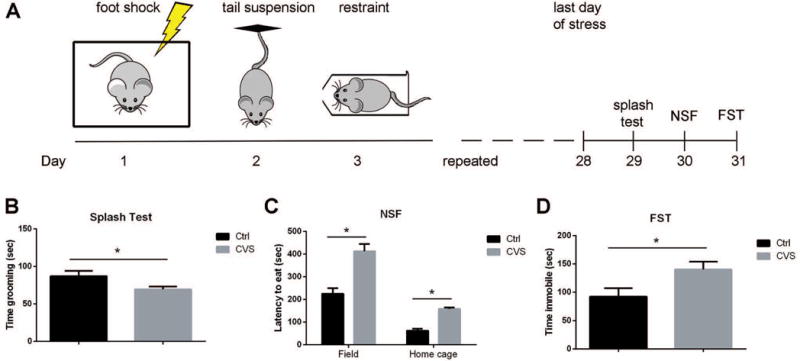Figure 1. Chronic variable stress (CVS) induces depressive-like behavior in adult mice.

(A) Schematic of CVS and behavioral testing. Mice were exposed to one type of stress per day for 28 days. Stressors were repeated in the order of foot shock, tail suspension, and restraint. (B) Mice undergoing CVS spent less time grooming in splash test compared to controls. * p<0.05 by two-tailed unpaired t-test, n=10–12 mice per group. (C) Mice undergoing CVS demonstrated longer latencies to eat in a novel environment and in their home cages in the novelty suppressed feeding (NSF) test. * p<0.05 by two-tailed unpaired t-test corrected for multiple comparison using Holm-Sidak method, n=10–12 mice per group. (D) Mice undergoing CVS displayed longer time immobile in the forced swim test (FST). * p<0.05 by two-tailed unpaired t-test, n=10–12 mice per group. Data represented as mean ± S.E.M.
